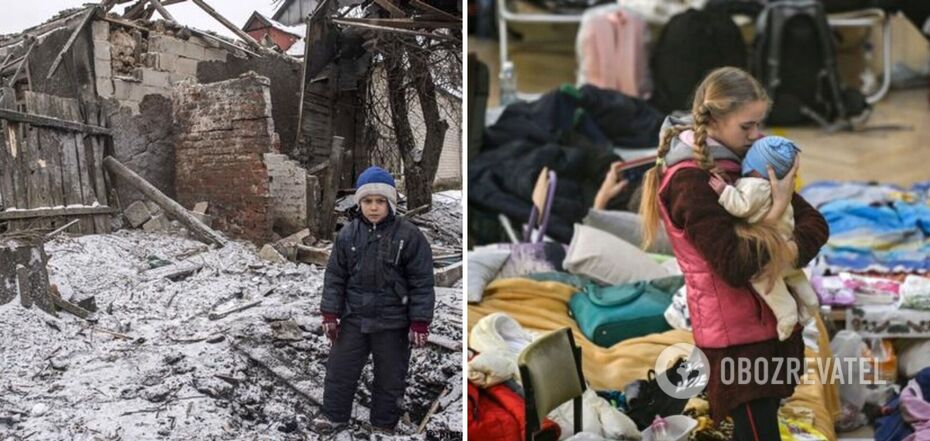Society
Doctors tell how to overcome childhood depression
The war in Ukraine, with all its negative consequences, has a painful effect on the psyche of children. This is especially true for those who were evacuated from the war zone and experienced fear from bombing and more. Of course, being in such a state all the time can lead to depression and harm health. Adults are looking for their own ways to support the body and resist depressive symptoms. Unfortunately, however, depression can occur even in children, and it requires special attention.
Often, childhood depression is not diagnosed or treated, calling its manifestations normal emotional age-related changes. However, such changes in children's behavior can significantly affect their development and socialization. WebMd, in consultation with Jennifer Casarella, MD, talked about the symptoms of depression in children and advised how to help them.
Bad moods or whims are a common occurrence in children of any age. And this does not mean that you should immediately think about depression. However, if a child's sadness interferes with everyday life, learning, and communication with the environment, you should pay attention to it.
What are the symptoms of depression in children?
Just like in adults, the manifestations of depression in children can vary and manifest themselves in each case in their own way. At the same time, experts consider the most common symptoms to be:
Capriciousness or anger;
Changes in appetite and sleep;
Constant sadness and depression;
Problems with concentration and thinking;
Social isolation;
Fatigue and decreased energy;
Problems in learning, communication with peers;
Feelings of guilt and uselessness;
Health complaints that cannot be treated;
Screaming or crying;
Thoughts of death and suicide.
As a rule, all of these symptoms do not appear in a child at the same time and can change each other in different periods. So, for example, a child with depression may well be good at school and have no problems in communication, but his or her condition will manifest itself in something else.
What can cause childhood depression?
According to experts, depression is a mood disorder that makes you feel sad and disinterested in life all the time. This condition does not go away for a long time and requires the help of specialists.
As in adults, childhood depression can be caused by a combination of factors, such as family predisposition, life events, biochemical dis orders, and the environment. Children from dysfunctional families or those who abuse alcohol or drugs are more likely to develop depression than others.
How to diagnose depressive disorder in children?
If you notice disturbing changes in your child's behavior and mood over a long period of time, you should consult a specialist. There is no specific diagnosis for depression, but doctors can talk to you and your child in private and conduct a questionnaire to identify problems. In addition, information about the child's behavior from teachers and classmates who can characterize him or her outside the home may be important.
A thorough diagnosis will help to more accurately establish a diagnosis or identify other possible problems that contribute to depression, such as conduct disorder or attention deficit hyperactivity disorder.
How to treat childhood depression?
The methods of treating depression in children are not much different from those for adults.
For example, the best results are achieved by combining psychotherapeutic methods with medication. It should be noted that most antidepressants are allowed only from a certain age and should be treated exclusively under medical supervision.
The key to treating childhood depression is early detection and diagnosis, as some parents are willing to deny the existence of behavioral disorders in their child. However, it is extremely important to accept and understand a child's depression in order to help their physical and emotional development.
Childhood depression deserves no less attention than adult depression, because it is sometimes more difficult for children to understand their emotions and overcome them. It is the understanding and support of loved ones and following the advice of specialists that can help avoid serious complications and promote the healthy development of the child's psyche.



























